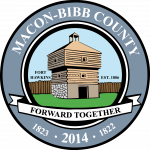Probate Proceedings
Note: Customers need to arrive prior to 4 p.m. to allow sufficient time to conclude all business with the Court at or before 5 p.m. There will be no payments accepted after 4:30 p.m.
INTRODUCTION
There are a number of different proceedings which may be filed in the Probate court following the death of a Georgia resident or a non-resident owning property in the State of Georgia. Proceedings are filed in the Probate Court of the county of the decedent’s residence in Georgia or in the county where property of a non-resident is located.
It is suggested that you discuss the matters of concern with an attorney who practices probate or estate law. An attorney can assist you in determining which proceeding is the most appropriate for your particular situation. Very often, there are other matters (e.g., tax returns, preparation of deeds, title transfers, benefit claims, creditor notices, debtor demands, etc.) which may also make it appropriate or necessary to seek the services of an attorney.
If you proceed without an attorney, it will be your responsibility to determine or select the proceeding appropriate to your situation. The staff of the Probate Court may not make the determination or selection for you, since to do so may constitute the unauthorized practice of law, a misdemeanor crime under Georgia law. Neither the Court nor the County can accept responsibility for incorrect decisions made by the staff, and they have been directed to refrain from giving that kind of advice.
It is also your responsibility to properly complete all forms, which must either be typed or legibly printed. The staff are not permitted to perform clerical tasks for the public. The staff will be able to answer any basic questions about the standard forms and about any deadlines for the filing of proceedings. They will also be able to schedule uncontested hearings and tell you how other matters are scheduled by the Court.The Probate Judge is required by law to remain impartial to all parties. The Judge must treat every case as though it may become contested. Therefore, the Judge also may not advise you on which proceeding is most appropriate to your case. The Judge is prohibited from discussing the facts or evidence in any contested case with a party unless all parties are present. You should not ask to discuss your case privately with the Judge, and you should understand if the Judge stops any discussion which appears to require the presence of others.
The Georgia Probate Court Standard Forms and General Instructions have been updated by the Council of Probate Court Judges to reflect recent changes to Georgia law. Accordingly, the Council recommends the use of the updated forms listed at https://georgiacourts.gov/probate/standard-forms/.
